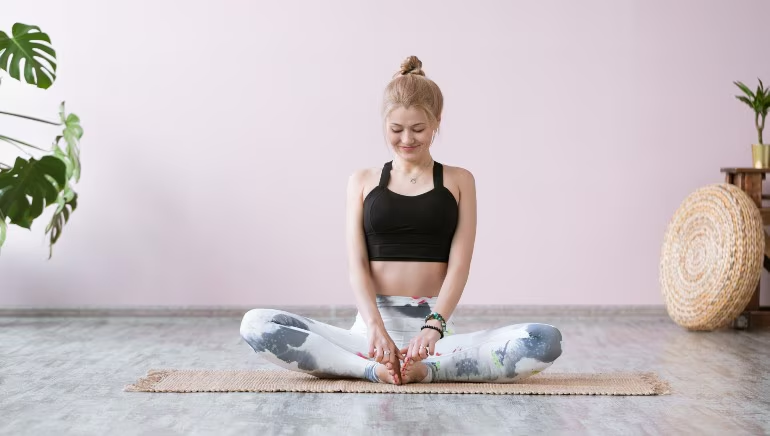Dysmenorrhea (period discomfort) is a common problem in many women. Symptoms are usually mild to moderate, including cramps, bloating, fatigue, headaches, and mood swings. Though over the counter medications can relieve these symptoms, many people are starting to look to natural remedies to a more holistic approach.
Best Natural Remedies for Period Cramps
1. Herbal Teas
An excellent natural remedy for getting period cramps under control is herbal teas. Ginger tea has anti-inflammatory properties that help to alleviate pain and reduce inflammatory response produced by cramps. Cramping can also be treated with peppermint tea, as the muscle relaxing properties of peppermint treat the tension in the abdominal area. Chamomile tea is also known to be calming, helping soothe cramps while calming you.
2. Heat Therapy
One of the easiest and most powerful ways of relieving menstrual cramps is applying heat to the lower abdomen. The muscles of the uterus can be relaxed and cramps decreased with a heating pad or warm compress. Warm helps increase blood flow to relax pain and discomfort.
3. Essential Oils
Lavender is relaxing and helpful with the pain and is perfectly suitable for cramp. In addition to Clary sage oil’s antispasmodic properties, it can be beneficial for reducing the muscle tension of menstrual cramps. Essential oils can be used for relief by putting a few drops in a diffuser or combining with a carrier oil (such as coconut oil) and massaging gently into the abdomen.
4. Massage Techniques
Touching the stomach area will help decrease the intensity of the cramps, and seeking the best gynecologist in Rawalpindi can provide further insights into managing such issues. Massaging the abdomen will help improve blood circulation and relax the muscles. You could use essential oils such as lavender or peppermint while giving the massage to make this remedy even more effective. Pressing lightly on them in a circular motion can help release tension and relieve discomfort.
Bloating and Digestive Distress Management
1. Hydration
To prevent bloating, drink plenty of water. Staying hydrated helps to flush the excess salt, a usual culprit for bloating. It also helps to digest food and works at the overall body process. To avoid bloating, strive to drink at least eight glasses of water a day.
2. Herbal Remedies for Digestion
Some herbs are good for easing digestive discomfort. They also have a reputation for combating bloating and gas. Bloating can be reduced by chewing on a teaspoon of fennel seeds after meals. If you’re looking for another goody, peppermint is also a great option, as the menthol wrapped around it helps relax the muscles of the gastrointestinal tract, thus enabling the body to digest food easily and eliminate the occurrences of bloating.
3. Dietary Adjustments
To avoid bloating and eliminate water retention, you can avoid eating salty foods, fatty foods and limit the caffeine intake. Instead, choose foods rich in fiber (fruits, vegetables, and whole grains) that help your digestion and fight the bloating. Eating foods like cucumbers and watermelon, which are high in water content, may also help.
Relieve Fatigue and Mood Swings
Hormone changes and high energy demands of the body usually cause fatigue and mood swings during menstruation.
1. Physical Activity
You’re probably not really feeling up for exercise during your period, but it turns out that lightly working out can actually boost energy levels and reduce fatigue. Walking, swimming or even gentle yoga can stimulate blood circulation, reduce cramps, and release endorphins which improve mood.
2. Mindfulness and Relaxation Techniques
Period discomfort can even be made worse by stress, so make sure you take some time relaxing. While meditation, deep breathing exercises, and journaling help ease stress, they also help decrease mood swings. Practicing these helps relax the body, calming anxiety so the menstrual cycle can also be more relaxed.
3. Nutrient-Rich Diet
There are some nutrients that can actually reduce your fatigue, and stabilize your mood during your period. Magnesium reduces muscle cramp and increases energy levels. Magnesium, for example, is found in plenty of foods such as spinach, nuts and seeds. There is also vitamin B6 and iron to help beat fatigue and promote normal blood flow with menstruation.
Long Term Comfort Lifestyle Changes
Healthy lifestyle habits can add to a big cushion when it comes to improving period comfort. Over time regular exercise can help improve the circulation of blood, and it may help to reduce the menstrual cramps. Overall, a nutritious, anti-inflammatory diet full of fruits, vegetables and healthy fats promotes overall well being and may help reduce menstrual pain.
When to Seek Medical Help
Natural remedies can help, but there are times when you need medical help. If your period pain is intolerable or disabling then you need to see your gynecologist in Islamabad. Medication may be necessary, especially if you have conditions like endometriosis, fibroids or pelvic inflammatory disease (PID) and early diagnosis is vital.
Conclusion
One great way to reduce period discomfort without needing pharmaceuticals is to manage it naturally. Whether herbal teas and heat therapy, essential oils or mindfulness techniques, there are several routes to cut cramps and bloating, and to combat fatigue. Despite this, if the symptoms are particularly bad or have lasted a while it is always advisable to consult a professional medical person.


